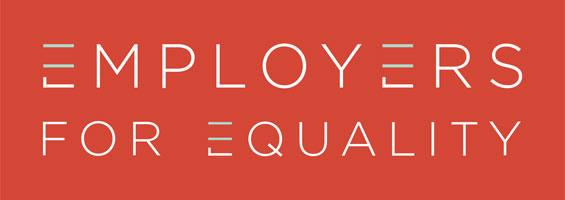Antitrust rules of conduct for events organised by Employers for Equality
1 Aim of this guideline
The aim of this guideline is to create both transparency on the subject of antitrust law and an information basis in order to prevent possible behaviour of the parties involved in the cooperation with Employers for Equality that is questionable under antitrust law.
2 Aim of the events organised by Employers for Equality
Content on diversity and anti-discrimination issues is shared at our events. Depending on the format, there may also be an exchange of experiences between participants on their own challenges and best practices.
3 Principles of antitrust law
- The participants are aware that the companies they represent may be in competition with each other. Competition cannot only exist in the sale or purchase of products or services. In any case, all partner companies compete for qualified specialists and managers.
- Each participant undertakes to comply with the provisions of antitrust law at all times. The partner companies of Employers for Equality are responsible for ensuring that their employees participating in the events are sensitised to and trained in antitrust law issues, particularly in the HR area, and are aware of the risks associated with exchanges with competitors.
- The partner companies will inform their employees participating in Employers for Equality events about these antitrust rules of conduct and ensure compliance with them.
4 Events organised by Employers for Equality
- Each Employers for Equality event is based on the topic announced via the event calendar (available on the website).
- No discussions are held, agreements made, decisions taken, behaviours agreed or information exchanged that could lead to or have the purpose of restricting competition (see in detail under 5.).
- Before each event, Employers for Equality draws attention to the need to comply with antitrust regulations. Participants are responsible for ensuring compliance with antitrust regulations. All participants are obliged to raise any concerns about possible unauthorised information with Employers for Equality staff and to leave the event if necessary.
- The above rules apply during all events as well as during all breaks or other opportunities for exchange between participants.
5 Inadmissible topics
Discussions on the following topics are not permitted:
- Prices (for example current prices, discounts, price increases, price reductions and rebates), customer lists, production costs, quantities, turnover, sales figures, capacities, quality, marketing plans, risks, investments, technologies and research and development programmes and their results
- Agreements or tacit, deliberate parallel behaviour (“gentlemen’s agreements”) not to directly or indirectly (e.g. via headhunters) poach or hire employees from other companies
- Salaries, salary components, salary bands, bonus payments
- Requirement profiles for applicants, unless publicly accessible via job advertisements (e.g. required degrees, grades, work experience)
- Prerequisites for career steps (e.g. what is the classification, usual length of stay, requirements/qualification profile for the next higher position), if not publicly accessible
- Amount of non-tariff allowances and special benefits (company pension scheme, insurance benefits, private use of company car, subsidies for canteen, local public transport, voluntary parental allowance, gym, etc.)
- Non-monetary benefits which, from an applicant’s point of view, may be essential for the decision in favour of a particular employer (e.g. number of home office days), if not publicly accessible
- Conditions of external suppliers (e.g. trainers, headhunters, software providers for HR software tools, advertising agencies)
- Internal company costs (e.g. expenses in the area of personnel marketing, recruiting, personnel costs)
- The company’s own marketing plans, e.g. for HR marketing or the costs and scope of a company’s specifically planned activities in the areas of employer branding, HR marketing or recruiting
- Contract conditions when concluding a contract with Employers for Equality and internal information from discussions between employees at Employers for Equality and the contact persons at the partner companies of Employers for Equality.
The list contains only examples and does not release the participants from the obligation to analyse the competition law
All of the aforementioned prohibited actions also apply to the exchange formats, conferences, networks and LinkedIn groups organised by Employers for Equality.
6 Permitted topics
Exchanges on the following topics are permitted:
- Political lobbying (e.g. statements on legislative proposals)
- General legal topics (e.g. interpretation of laws, information on new legislation and its effects)
- General economic topics (e.g. general shortage of skilled labour)
- Collective labour agreement conditions
- Internal organisation, processes and methods (e.g. agile teams, organisational implementation of part-time work in production, inclusion programmes, reporting channels)
- Internal training measures in connection with the objective of the Employers for Equality training programme
- Design of the workplace environment (e.g. social spaces, office design)
- Employee satisfaction
- Publicly accessible information (e.g. job adverts, annual reports, homepages, trade fair appearances)
The list contains only examples and does not release the participants from the obligation to check the relevance of certain information under competition law themselves before sharing it.

